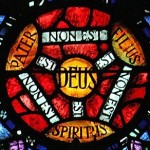We run our website the way we wished the whole internet worked: we provide high quality original content with no ads. We are funded solely by your direct support. Please consider supporting this project.

Are the Charismatic Gifts for Today’s Church?
This week, we have offered a brief series on the Holy Spirit touching on what the Spirit does, how it changes us, and how the fruit of the Spirit is produced. Now we will look briefly at the gifts of the Holy Spirit, and more specifically the “charismatic” gifts.
In the church today, Christians can be roughly divided into three groups on this topic. First, cessationists believe that the charismatic gifts ceased as soon as the NT was completed. The continuationists believe that the charismatic gifts are for today and thus should be pursued and practiced. In between are those who are not theologically opposed to the exercise of charismatic gifts, but they are cautious.
The following is a brief introduction that supports the continuationist view.
In the various passages where the gifts are spoken of in the NT, (1 Cor 12, Rom 12, Eph 4 and 1 Pet 4), we must ask this question: Where is it stated that God did not intend for these gifts to continue throughout history? Isn’t it arbitrary to suppose for example, that the gift of teaching is still valid but the gift of speaking in tongues is not? Isn’t it arbitrary to allow for exhortation, giving, showing mercy while excluding Spirit-inspired words of wisdom, prophesy, speaking in tongues, and healing?
In addition, to exclude these is actually unbiblical. Paul affirms that Christians should not lack any spiritual gift as long as they “wait for the revealing of the Lord Jesus Christ” (see 1 Cor 1:4-8). He uses the same word (charisma) in this passage to refer to spiritual gifts as he uses in 1 Cor 12:1 when discussing the charismatic gifts. The implication is that Paul believed the charismatic gifts would be in operation until the Lord’s return.
In Eph 4:11-13, he explicitly mentions the charismatic gift of prophecy that along with other gifts are meant to build up the saints “to the measure of the full stature of Christ,” which will not occur until the Lord returns.
Along similar lines, John instructs that “the anointing” they received “abides” in them and shall do so until the Lord returns. Hence, they “may have confidence and not be put to shame before him at this coming (1 Jn 2:27-28). The assumption is that nothing substantially changes with the “anointing” the church receives until the Lord returns.
Other aspects of the NT confirm the view that all the gifts are intended for the entire church age. For example, Paul explicitly commands believers to “strive for spiritual gifts” (speaking specifically of the charismatic gifts listed in 1 Cor 12). Believers are especially to “strive for” and be “eager” for the gift of prophecy (1 Cor 14:1, 39). Paul commands believers not to “quench the Spirit,” “despise the words of prophets,” or “forbid speaking in tongues” (1 Thes 5:19-22; 1 Cor 14:39).
While cessationists insist that these verses apply only to believers who lived before the NT was completed, Paul gives his instruction in these passages without any temporal, cultural, or theological qualification. To the same audience and in the same context he also gives his beautiful teaching on the supremacy of love (1 Cor 13). If we believe he is talking to contemporary Christians about love, we have no reason to conclude he is not talking to contemporary Christians when he gives helpful instruction regarding the use of the charismatic gifts.
—Adapted from Across the Spectrum, pages 237-240
Image by EL@Seattle via Flickr
Category: Q&A
Tags: Gifts, The Holy Spirit
Topics: The Church
Related Reading

Does the Doctrine of the Trinity Matter?
Jesus reveals the greatest, most beautiful, and mysterious aspect of God when he, despite being himself God Incarnate, relates to God as his “Father” and refers to God as “the Holy Spirit.” There is, of course, only one God (1 Cor 8:6). Yet Jesus reveals that God somehow exists as Father, Son and Holy Spirit.…

Knowing and Experiencing God
The way we view God is in part conditioned by the state of our minds and hearts. Origen put it this way: “[T]he Holy Spirit addresses our nature in a manner appropriate to its imperfection, only as far as it is capable of listening.”[1] In fact, Origen went so far as to argue that the…

Podcast: Can God Be Disappointed in Us?
Greg reflects on what it means for God to trust us, love us, and have expectations for us. Also, consider supporting ReKnew. You can do so HERE. http://traffic.libsyn.com/askgregboyd/Episode_0435.mp3

How to Produce the Fruit of the Spirit
When the New Testament tells us to be loving, joyful, peaceful, kind and so on, it is not giving us a new set of behaviors that we are to strive to accomplish. Striving to attain them means nothing if they are sought as ethical ideals or to meet a set of religious rules. They have…

A Brief Theology of the Trinity
“The economic Trinity is the immanent Trinity, and the immanent Trinity is the economic Trinity.” This is the maxim introduced by the Catholic theologian Karl Rahner that should shape our discussion of the Trinity. It is simply a short-hand way of saying that since the way God is toward us in Christ truly reveals God,…

Podcast: How Does God Influence Us?
Greg discusses the problem with speculating on HOW God interacts in the world. http://traffic.libsyn.com/askgregboyd/Episode_0265.mp3
